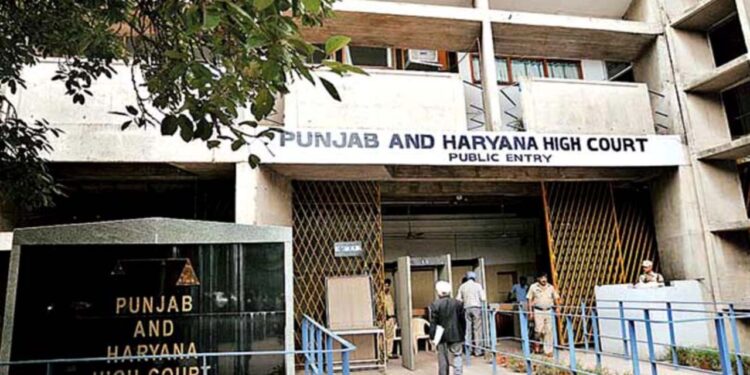The Punjab and Haryana High Court upheld the compulsory retirement of District Judge Ved Pal Gupta, who faced allegations of acquiring several properties through corrupt means after joining the judicial service in 1987 [Ved Pal Gupta vs High Court of Punjab and Haryana and another].
The Division Bench, comprising Chief Justice Sheel Nagu and Justice Anil Kshetarpal, ruled that while the High Court may grant administrative permission for the purchase, sale, or transfer of properties, this does not absolve the disciplinary authority from investigating the legitimacy of these transactions.
The Court referred to the Employees Conduct Rules of 1965, which prohibit government employees from acquiring or disposing of immovable property without the knowledge of the prescribed authority. However, the Court clarified that the permission granted by the competent authority is merely to ensure the authorities are informed, not to assess the authenticity of the employee’s financial means or the genuineness of the transaction.
In 2020, the full court of the High Court recommended action against Ved Pal Gupta, leading to his compulsory retirement. Gupta challenged this decision in 2021, arguing that the action was unwarranted.
Gupta had been accused of acquiring properties in Gurgaon, Faridabad, and Panchkula under the names of his relatives by using corrupt means. When he joined the judiciary, Gupta owned only a small residential property in Gohana, Haryana.
The Court reviewed the inquiry report, which indicated that Gupta’s mother-in-law purchased a property in 1998 and transferred it to Gupta’s wife within six months. “When asked to do so, the petitioner failed to provide his mother-in-law’s income tax records. The inquiry officer also found that all other immovable properties were bequeathed to her sons and the family of her predeceased son, except a property in Sushant Lok, which was transferred to Gupta’s wife. The remaining four daughters received no share in the immovable property except jewelry, which was divided equally among all five daughters,” the Court noted.
The Court concluded that the transfer of property to Gupta’s wife appeared to be a preferential act, despite no evidence suggesting that her mother had any special affection for her. Additionally, the Court found that Gupta failed to prove that his mother-in-law had the financial capacity to purchase the property.
Regarding a property purchased by Gupta’s father in Panchkula, the Court pointed out that his father was not financially capable of making such a purchase. The Court also noted discrepancies in Gupta’s father’s income tax records and the “cash in hand” discrepancies.
The Court further observed that Gupta’s wife had acquired a property in Panchkula for a significantly lower price than its market value, raising concerns about the legitimacy of the deal.
After considering all the evidence, the Court concluded that there was no reason to interfere with the decision of the disciplinary authority. “In light of these findings, the writ petition is dismissed,” the Court ruled.
Senior Advocates Gurminder Singh and Jatinder Singh Gill represented the petitioner, while Advocates Ranjit Singh Kalra and Karan Sharma appeared for the High Court. The State of Haryana was represented by Additional Advocate General Deepak Balyan.

















